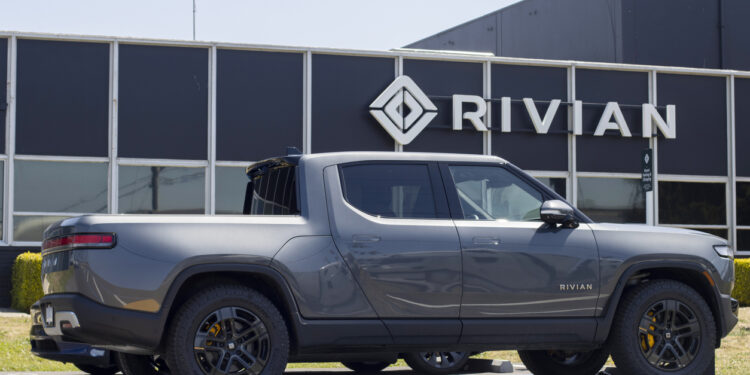Shares fall as tariffs and policy shifts cloud the electric vehicle outlook
Rivian Automotive (RIVN) trimmed the midpoint of its annual delivery forecast on Thursday, signaling tougher quarters ahead as the expiration of federal tax credits and rising tariffs weigh on the electric vehicle (EV) sector. The news sent Rivian shares down more than 5% in early trading.
The EV maker now expects annual deliveries of 41,500 to 43,500 vehicles, with the midpoint reduced by 500 units compared with its prior forecast of 40,000 to 46,000. The revised outlook comes despite Rivian reporting a 32% surge in third-quarter deliveries, totaling 13,201 vehicles, which surpassed Wall Street estimates of 12,690 according to Visible Alpha.
The challenge stems largely from the expiration of the $7,500 federal tax credit on EV leasing, which ended on Tuesday following new legislation passed by Congress. For years, the incentive had been a key driver of demand, helping offset higher upfront costs for buyers. Analysts warned that sales and leases could decline sharply after the credit’s removal, though a last-minute surge in purchases was expected before the deadline.
Adding to the headwinds are tariffs on imported auto parts, which have increased Rivian’s manufacturing costs and pressured margins. These duties, part of the Trump administration’s push to reduce foreign dependency, have forced automakers to reassess supply chains and accelerate U.S.-based production.
For Rivian, the higher cost environment poses challenges just as it works to improve profitability and prepare for the launch of its lower-cost R2 SUV line next year. While strong third-quarter results show continued consumer interest, the combination of policy changes and rising expenses underscores the uncertain road ahead for both Rivian and the broader EV industry.
You might like this article:KULR Launches Next-Generation Battery Management System for Space and Defense











